Podcast: Play in new window | Download (Duration: 4:57 — 3.5MB) | Embed
Subscribe: Apple Podcasts | Spotify | Amazon Music | Android | Pandora | iHeartRadio | JioSaavn | Podchaser | Gaana | Podcast Index | Email | TuneIn | Deezer | Anghami | RSS | More
From the Life of Saint Frances of Rome by Mary Magdalene Anguillaria, superior of the Oblates of Tor di Specchi 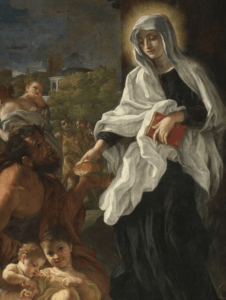
The patience and charity of Saint Frances
God not only tested the patience of Frances with respect to her material wealth, but, as I have said before and will reiterate, he also tested her own body in a variety of ways, especially through long and serious illnesses which she had to undergo. And yet no one ever observed in her a tendency towards impatience. She never exhibited any displeasure when she complied with an order, no matter how foolish.
Through the premature deaths of her sons whom she loved dearly, Frances proved her constancy. With peace of soul she always reconciled herself to the will of God and gave him thanks for all that happened. With the same constancy she endured the slander of those who abused and reviled her and her way of life. She did not show the least hint of aversion towards them, even though she knew that they judged her rashly and spoke falsely of her way of life. Rather, returning good for evil, she habitually prayed to God for them.
God had not chosen her to be holy merely for her own advantage. Rather, the gifts he conferred upon her were to be for the spiritual and physical advantage of her neighbour. For this reason he made her so lovable that anyone with whom she spoke would immediately feel captivated by love for her and ready to help her in everything she wanted. Divine power was present and working in her words, so that in a few sentences she could bring consolation to the afflicted and the anxious, calm the restless, pacify the angry, reconcile enemies and extinguish long-standing hatreds and animosities. Again and again she would prevent a planned revenge from being carried out. She seemed able to subdue the passions of every type of person with a single word and lead them to do whatever she asked.
For this reason people flocked to Frances from all directions, as to a safe refuge. No one left her without being consoled, although she openly rebuked them for their sins and fearlessly reproved them for what was evil and displeasing to God.
Many different diseases were rampant in Rome. Fatal diseases and plagues were everywhere, but the saint ignored the risk of contagion and displayed the deepest kindness towards the poor and the needy. Her empathy would first bring them to atone for their sins. Then she would help them by her eager care, and urge them lovingly to accept their trials, however difficult, from the hand of God. She would encourage them to endure their sufferings for love of Christ, since he had previously endured so much for them.
Frances was not satisfied with caring for the sick she could bring into her home. She would seek them out in their cottages and in public hospitals, and would refresh their thirst, smooth their beds, and bind their sores. The more disgusting and sickening the stench, the greater was the love and care with which she treated them.
She used to go to the Campo Santo with food and rich delicacies to be distributed to the needy. On her return home she would bring pieces of worn-out clothes and unclean rags which she would wash lovingly and mend carefully, as if they were to be used for God himself. Then she would fold them carefully and perfume them.
For thirty years Frances continued this service to the sick and the stranger. While she was in her husband’s house, she made frequent visits to Saint Mary’s and Saint Cecilia’s hospitals in Trastevere, and to the hospital of the Holy Spirit in Sassia and to a fourth hospital in the Campo Santo. During epidemics like this it was not only difficult to find doctors to care for the body but even priests to provide remedies for the soul. She herself would seek them out and bring them to those who were disposed to receive the sacraments of penance and the Eucharist. In order to have a priest more readily available to assist her in her apostolate, she supported, at her own expense, a priest who would go to the hospitals and visit the sick whom she had designated.
Excerpts from the English translation of The Liturgy of the Hours (Four Volumes) © 1974, International Commission on English in the Liturgy Corporation. All rights reserved.


 For other audio recordings of various spiritual classics you can visit the
For other audio recordings of various spiritual classics you can visit the 

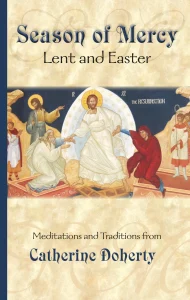 Learning to Love
Learning to Love
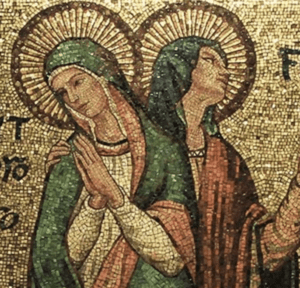

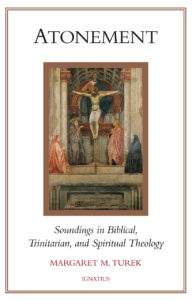
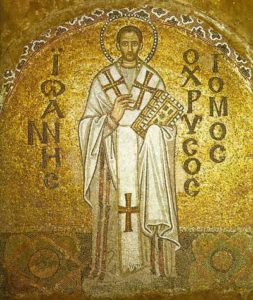

 2nd Sunday of Lent – A Time of Lectio Divina for the Discerning Heart Podcast
2nd Sunday of Lent – A Time of Lectio Divina for the Discerning Heart Podcast
